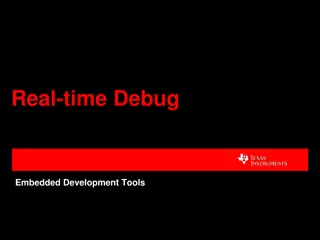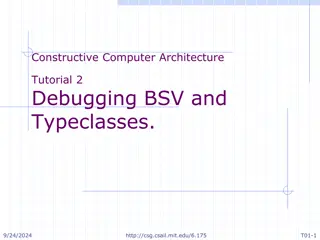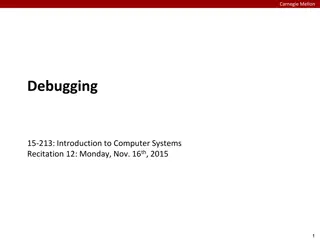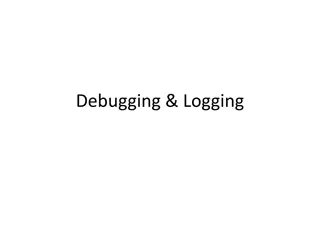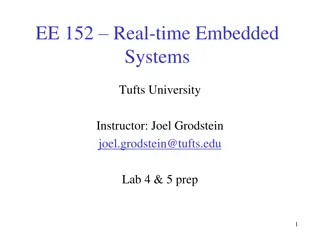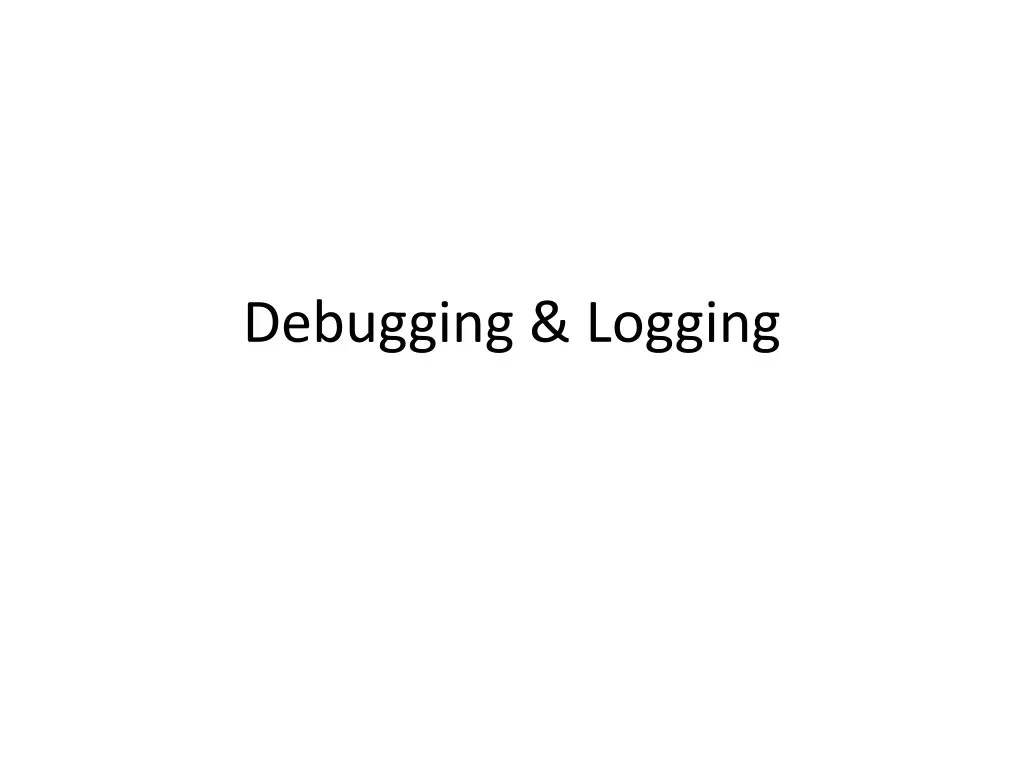
Understanding Java Logging: Levels, Loggers, and Handlers
Dive into the world of Java logging to enhance your debugging and logging skills. Learn how to utilize different levels, loggers, handlers, and formatters for effective message management in Java applications.
Download Presentation

Please find below an Image/Link to download the presentation.
The content on the website is provided AS IS for your information and personal use only. It may not be sold, licensed, or shared on other websites without obtaining consent from the author. If you encounter any issues during the download, it is possible that the publisher has removed the file from their server.
You are allowed to download the files provided on this website for personal or commercial use, subject to the condition that they are used lawfully. All files are the property of their respective owners.
The content on the website is provided AS IS for your information and personal use only. It may not be sold, licensed, or shared on other websites without obtaining consent from the author.
E N D
Presentation Transcript
Java Logging Java has built-in support for logging Logs contain messages that provide information to Software developers (e.g., debugging) System administrators Customer support agents Programs send log messages to loggers There can be one or more Each message has a level SEVERE, WARNING, INFO, CONFIG, FINE, FINER, FINEST
Java Logging Loggers have a method for each message level that are used to enter messages in the log severe, warning, info, config, fine, finer, finest Rather than removing debugging log messages from the code, we leave them in Loggers can be configured to include or omit log messages based on their levels Logger.setLevel(level) method ALL (include all messages) OFF (omit all messages) SEVERE, WARNING, INFO, CONFIG, FINE, FINER, FINEST (include all messages at a particular level and higher)
Java Logging Each logger has one or more handlers associated with it Handlers represent destinations to which the log messages should be sent ConsoleHandler (sends messages to the console) FileHandler (sends messages to a file) SocketHandler (sends messages to a network socket) Like loggers, handlers can also be configured to include or omit log messages based on their levels Handler.setLevel(level) method ALL (include all messages) OFF (omit all messages) SEVERE, WARNING, INFO, CONFIG, FINE, FINER, FINEST (include all messages at a particular level and higher)
Java Logging Each handler has a formatter which defines the format used to encode its messages SimpleFormatter XMLFormatter
import java.util.logging.*; public class Server { Initializing Logging private static Logger logger; static { try { initLog(); } catch (IOException e) { System.out.println("Could not initialize log: " + e.getMessage()); } } private static void initLog() throws IOException { Level logLevel = Level.FINEST; logger = Logger.getLogger( tickettoride"); logger.setLevel(logLevel); logger.setUseParentHandlers(false); Handler consoleHandler = new ConsoleHandler(); consoleHandler.setLevel(logLevel); consoleHandler.setFormatter(new SimpleFormatter()); logger.addHandler(consoleHandler); FileHandler fileHandler = new FileHandler("log.txt", false); fileHandler.setLevel(logLevel); fileHandler.setFormatter(new SimpleFormatter()); logger.addHandler(fileHandler); } }
Logging Messages Logging messages with specific levels severe(message) Same for warning, info, config, fine, finer, finest log(level, message) Logging method enter/exit entering(className, methodName) exiting(className, methodName) Logged at FINER level Logging throwing an exception throwing(className, methodName, throwable) Logged at FINER level Logging catching an exception log(level, message, throwable)
Logging Messages import java.util.logging.*; public class Server { private void run() { logger.info("Initializing HTTP Server"); try { server = HttpServer.create(new InetSocketAddress(SERVER_PORT_NUMBER), MAX_WAITING_CONNECTIONS); } catch (IOException e) { logger.log(Level.SEVERE, e.getMessage(), e); return; } server.setExecutor(null); // use the default executor server.createContext("/games/list", new ListGamesHandler()); server.createContext("/routes/claim", new ClaimRouteHandler()); logger.info("Starting HTTP Server"); server.start(); } } logger.info("Creating contexts");
Logging Messages class ClaimRouteHandler implements HttpHandler { private static Logger logger; static { logger = Logger.getLogger("tickettoride"); } @Override public void handle(HttpExchange exchange) throws IOException { ... logger.entering("ClaimRouteHandler", "handle"); try { ... logger.fine(reqData); ... } catch (IOException e) { logger.log(Level.SEVERE, e.getMessage(), e); ... } logger.exiting("ClaimRouteHandler", "handle"); } ... }
Android Studio Debugger Running programs with and without debugger Running multiple programs at the same time (with or without debugger) Swapping between programs Breakpoints (step into, step over, return, continue) Variables (locals and parameters) Watches Runtime stack (frames) Stopping programs










